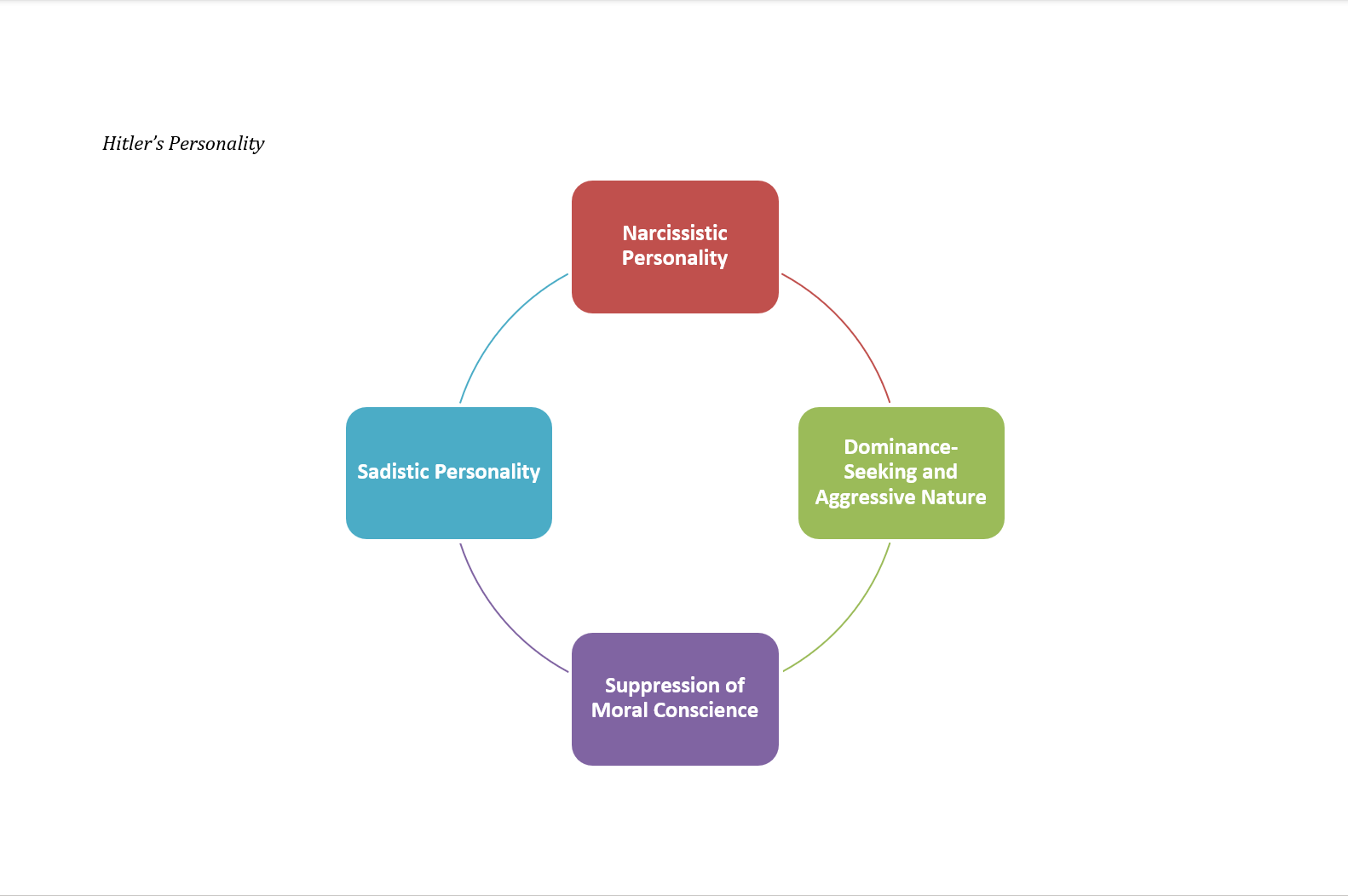Personality Analysis of Political Leaders and Its Impact on Geopolitics and National Politics: A Case Study of Imam Khomeini and Hitler – A Psychological and Political Analysis
Keywords:
Political psychology, geopolitics, Hitler, Imam Khomeini, Lasswell.Abstract
The psychology of political leaders, understanding their personality traits, and the formation of their perceptions and interpretations of politics are central topics in the field of political psychology. How individuals, influenced by their temperamental and psychological backgrounds at the individual level, as well as situational and structural factors, engage in specific actions and make decisions plays a fundamental role in understanding the politics of nations. The theoretical framework utilized in this article is the theory of political personality, specifically the typology of elites, developed by Harold Lasswell, an American psychologist and sociologist. This study analyzes the influential events in the lives of Imam Khomeini and Hitler and their interpretations of these events to examine their personalities. The research hypothesis posits that, according to this theory, specific personality traits influence the behavior and character of both political leaders under study. This article employs content analysis and library research methods, and the findings indicate that Imam Khomeini, as a political leader of Iran, possesses a "managerial type" personality, exerting geopolitical influence on various parts of the world. In contrast, Hitler exhibits a combination of the "agitator type" and the "reformer type" personalities. Consequently, Hitler subscribed to Friedrich Ratzel’s concept of Lebensraum (living space) and, in pursuit of this idea, instigated geopolitical transformations such as World War II, the Holocaust, and the Anti-Comintern Pact.
Downloads
References
Abdolmaleki, S. (2017). Political Psychology. Tehran: Payam Noor Publications.
Ahmadi, S. A. (2010). The role of religion in expanding the sphere of influence, a case study: Shiism and Iran. Geopolitics Quarterly, 6(1).
Alamuti, J. B., Athary, S. A., Barzegar, K., & Ghaderi, N. (2024). The role of Erdoğan's personality in the political development of Türkiye. Studies of International Relations Journal, 17(65).
Ansari, M. (1974). Political Tensions After World War II. Tehran: Kharazmi Publications.
Bashirieh, H. (2005). Political Science Education. Tehran: Negah Moaser Publishing.
Fathi Ashtiani, A. (1998). An Introduction to Political Psychology. Tehran: Be'sat Publications.
Ghasemi, B. (2018). Geopolitics of the Resistance Axis and National Security of the Islamic Republic of Iran Based on the Discourse of the Islamic Revolution. Quarterly Journal of Security Horizons, 38(1).
Ghorbani Sepehr, A., Ansari, Z., & Ghorbani Sepehr, P. (2024). Personality Psychology of Political Leaders and Its Impact on Geopolitics of Countries (Case Study: Hitler and Gandhi). Geography and Human Relations, 5(4).
Haji Hassan, M., & Ghaffari Hashjin, Z. (2018). Components of Imam Khomeini's (RA) leadership in the process of the Islamic Revolution (with emphasis on the structural dimension). Islamic Revolution Research Quarterly, 8(29).
Heshmatzadeh, M. B. (2005). Introduction and Framework for Examining the Effects of the Islamic Revolution in Islamic Countries. Research Letter(12).
Jamshidi, M. H. (2002). The concept of justice in the political thought of Imam Khomeini (RA). Islamic Revolution Journal(36).
Khalili-Shorini, F., & Javadi-Hastian, M. (2017). The Effect of Dimensions and Components of Political Intelligence. First National Conference of Iranian Management Sciences, Association for Applied Research in Management and Accounting,
Khomeini, R. (1995). Velayat Faqih. Tehran: Amir Kabir.
Khomeini, R. (1997). Pure Muhammadan Islam in the Words and Message of Imam Khomeini. Qom: Institute for the Compilation and Publication of Imam Khomeini's Works.
Khomeini, R. (1999). Sahifeh Noor: A Collection of Imam Khomeini's Guidelines. Tehran: Ministry of Culture and Islamic Guidance, Printing and Publications Organization.
Naqibzadeh, A. (1993). Developments in International Relations. Tehran: Ney Publications.
Neumar, A. (2006). Dictators are Sick. Tehran: Arjomand Publications.
Pourahmadi Meybodi, H., & Soltanpour, M. (2020). Carter's Psychology and American Foreign Policy Towards Iran. Iranian Journal of International Politics, 9(2).
Shariatnia, K., & Motlabi, M. (2011). Political Psychology: Entering the Field of Theorizing in Political Science. Quarterly Journal of Political Studies, 4(14).
Skorzeny, O. (1974). The Unknown War: A German's Account of World War II. Tehran: Amirkabir Publications.
Taylor, A. J. P. (1995). World War II. Tehran: Scientific and Cultural.
Tohami, M. (2008). Imam Khomeini; Islamic Revolution, Innovation. Islamic University, 12(2).

Downloads
Additional Files
Published
Submitted
Revised
Accepted
Issue
Section
License
Copyright (c) 2025 Mahdi Abbasi (Author)

This work is licensed under a Creative Commons Attribution-NonCommercial 4.0 International License.





